Menu
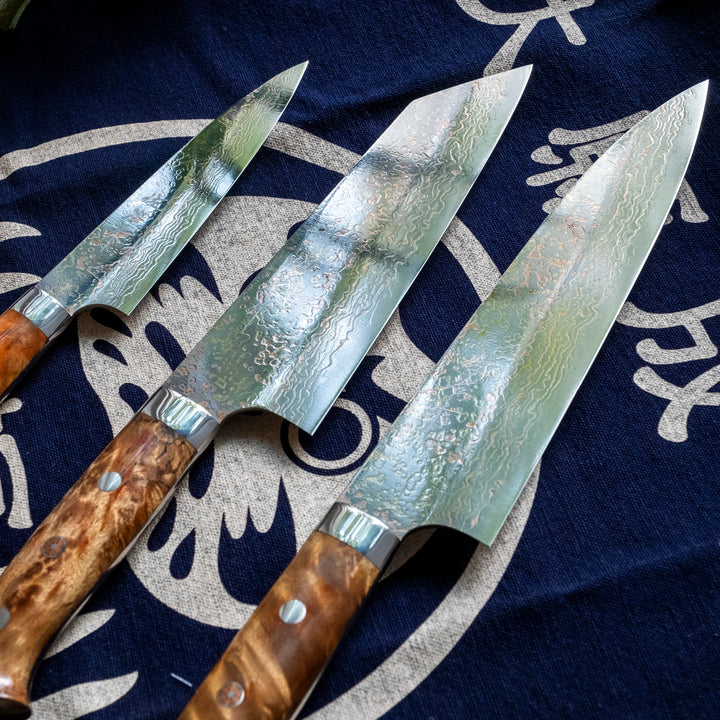
THE BLACKSMITH
TAKESHI SAJI
- Choosing a selection results in a full page refresh.









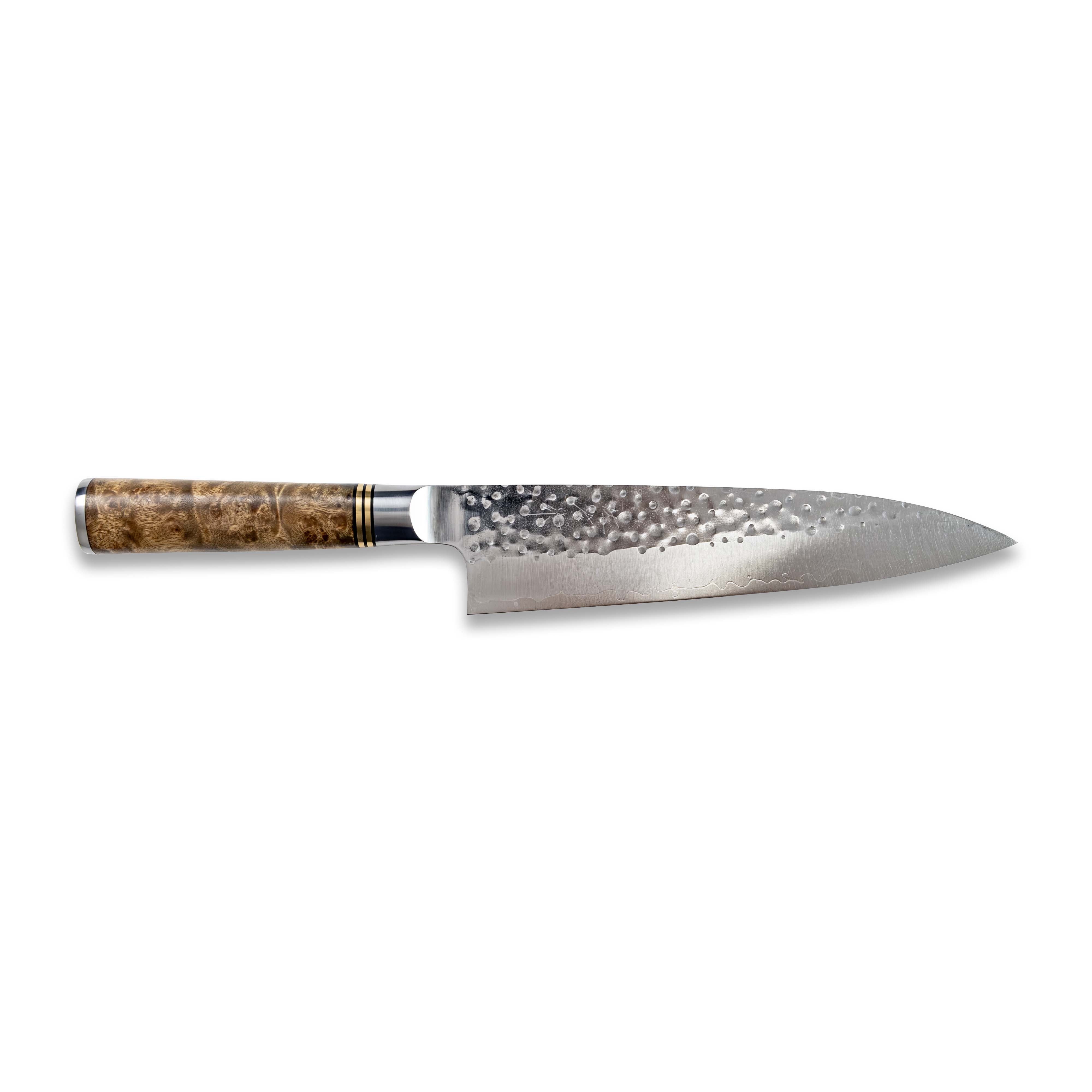
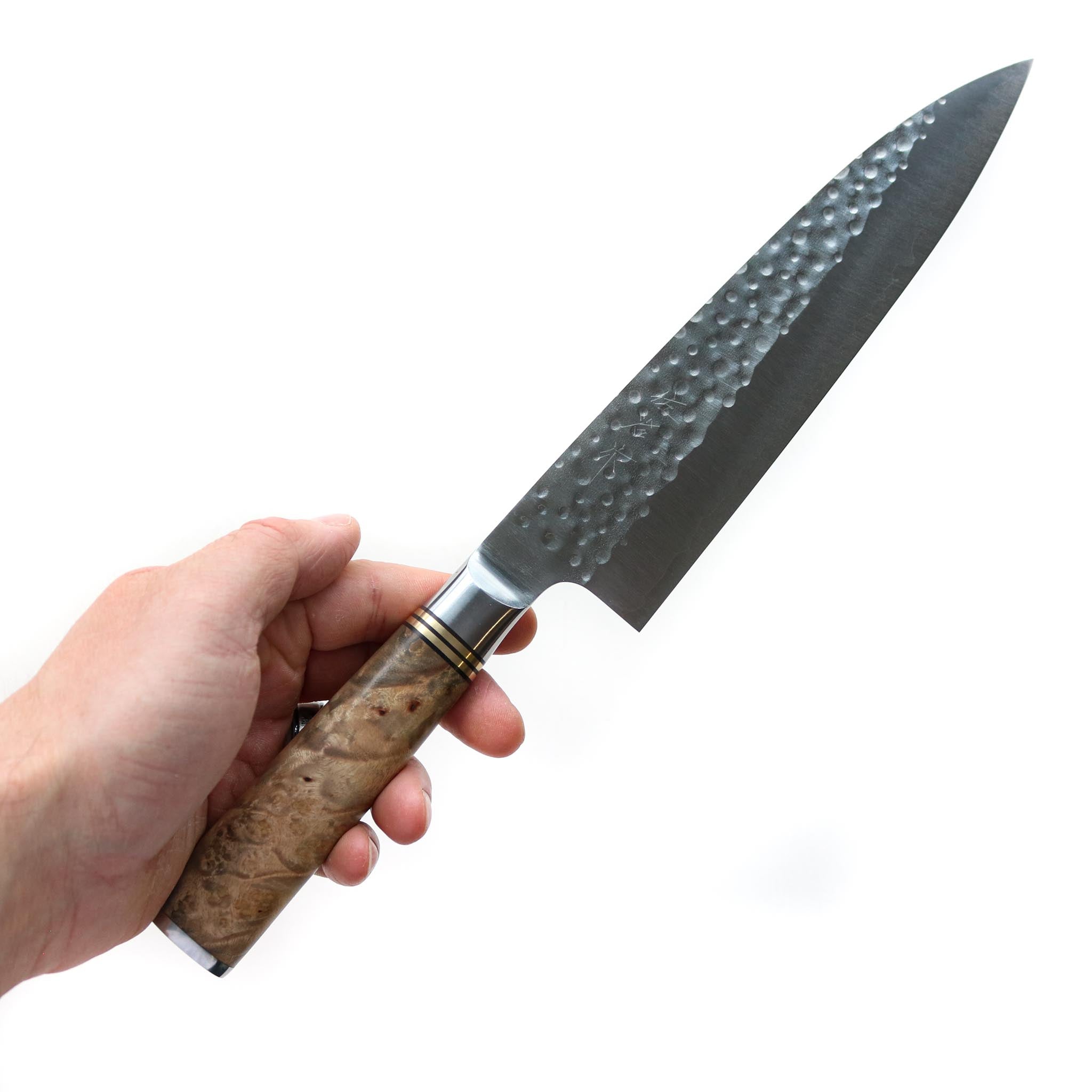
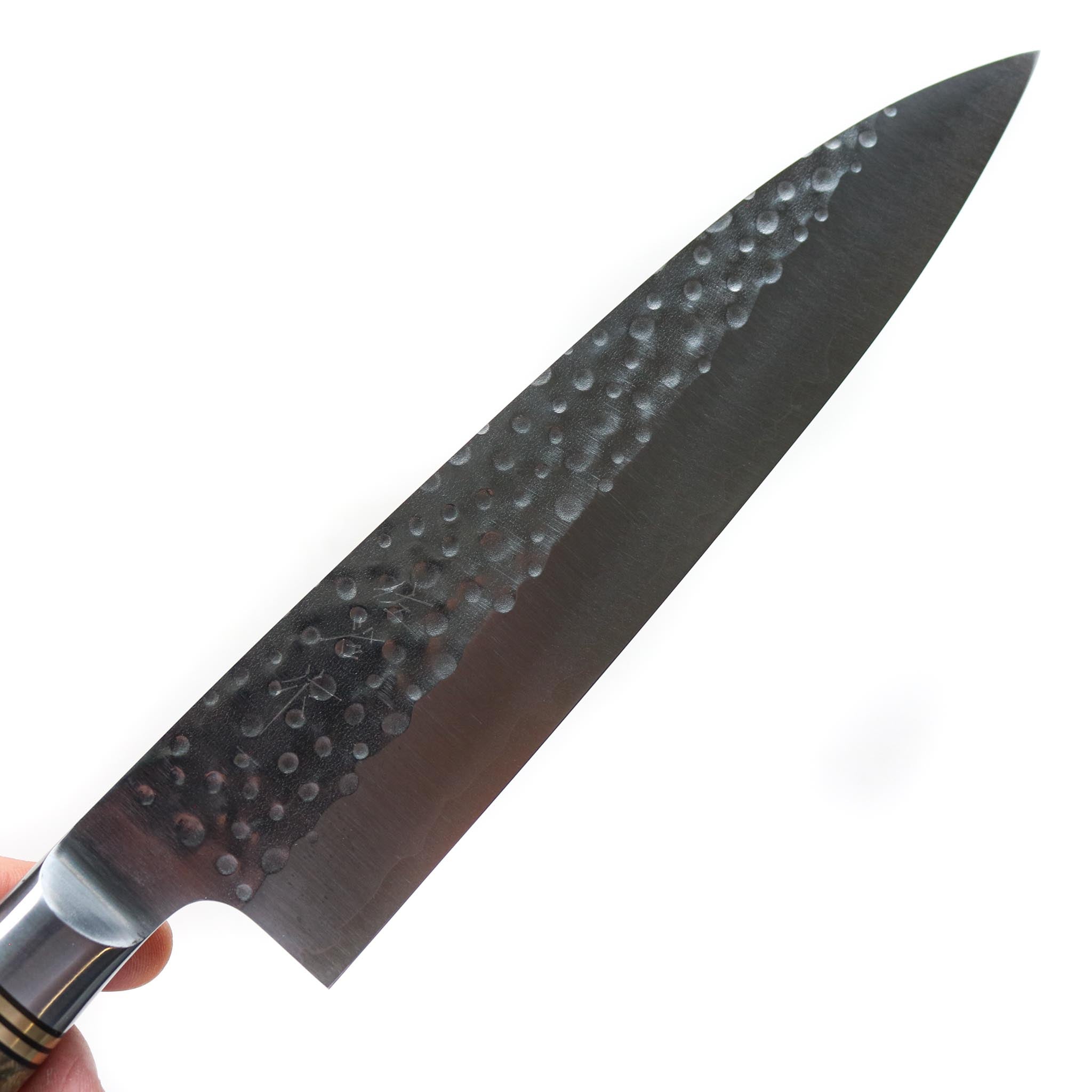
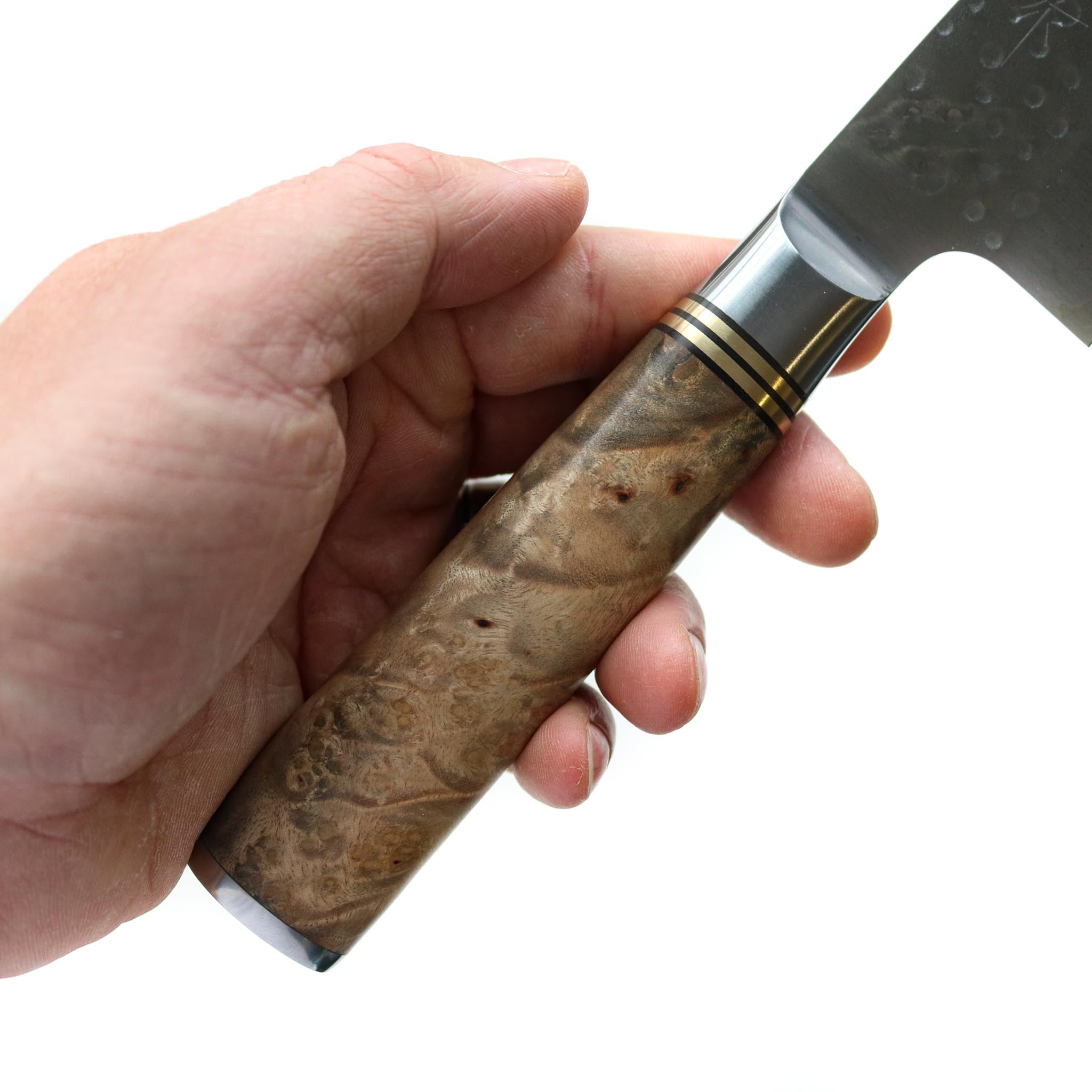
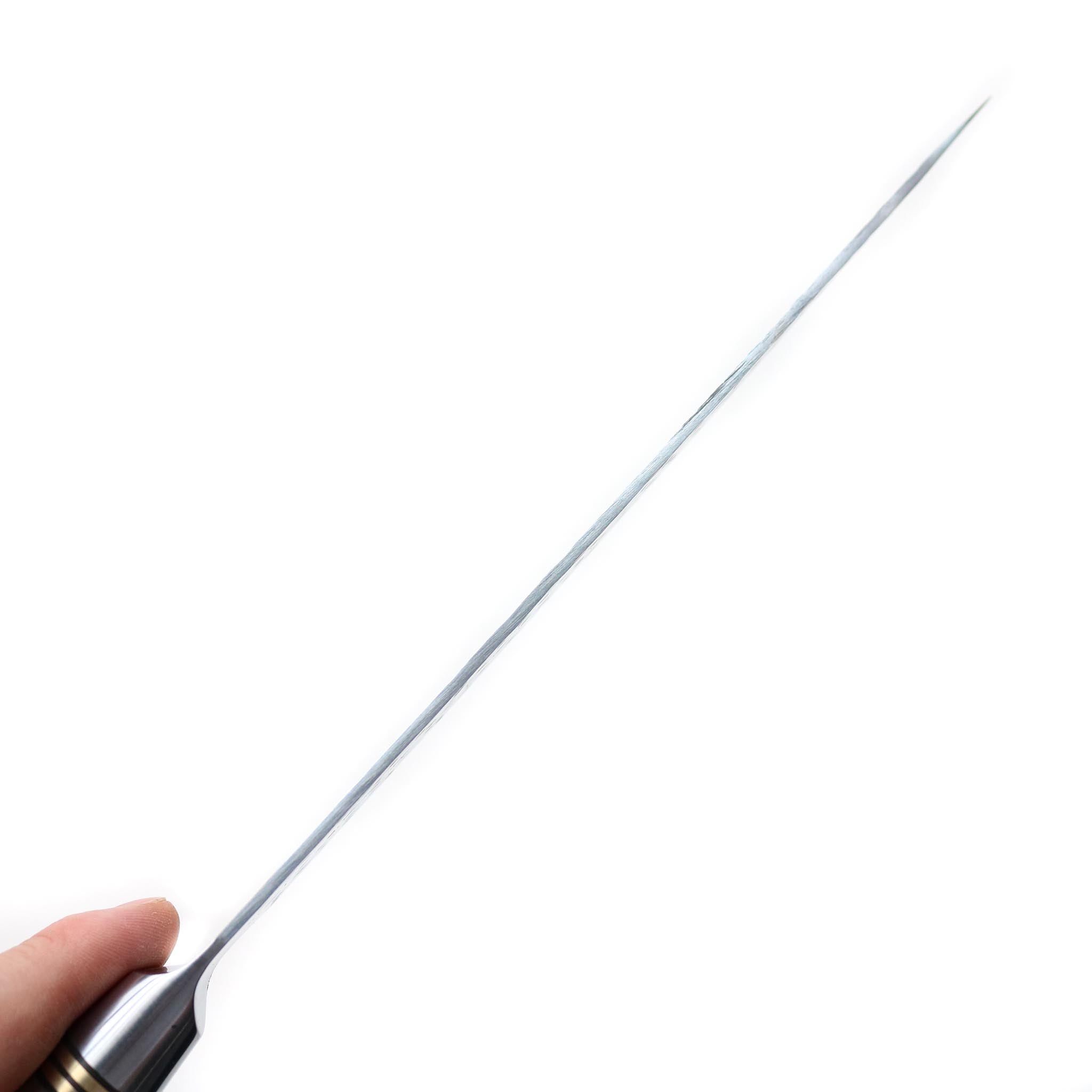
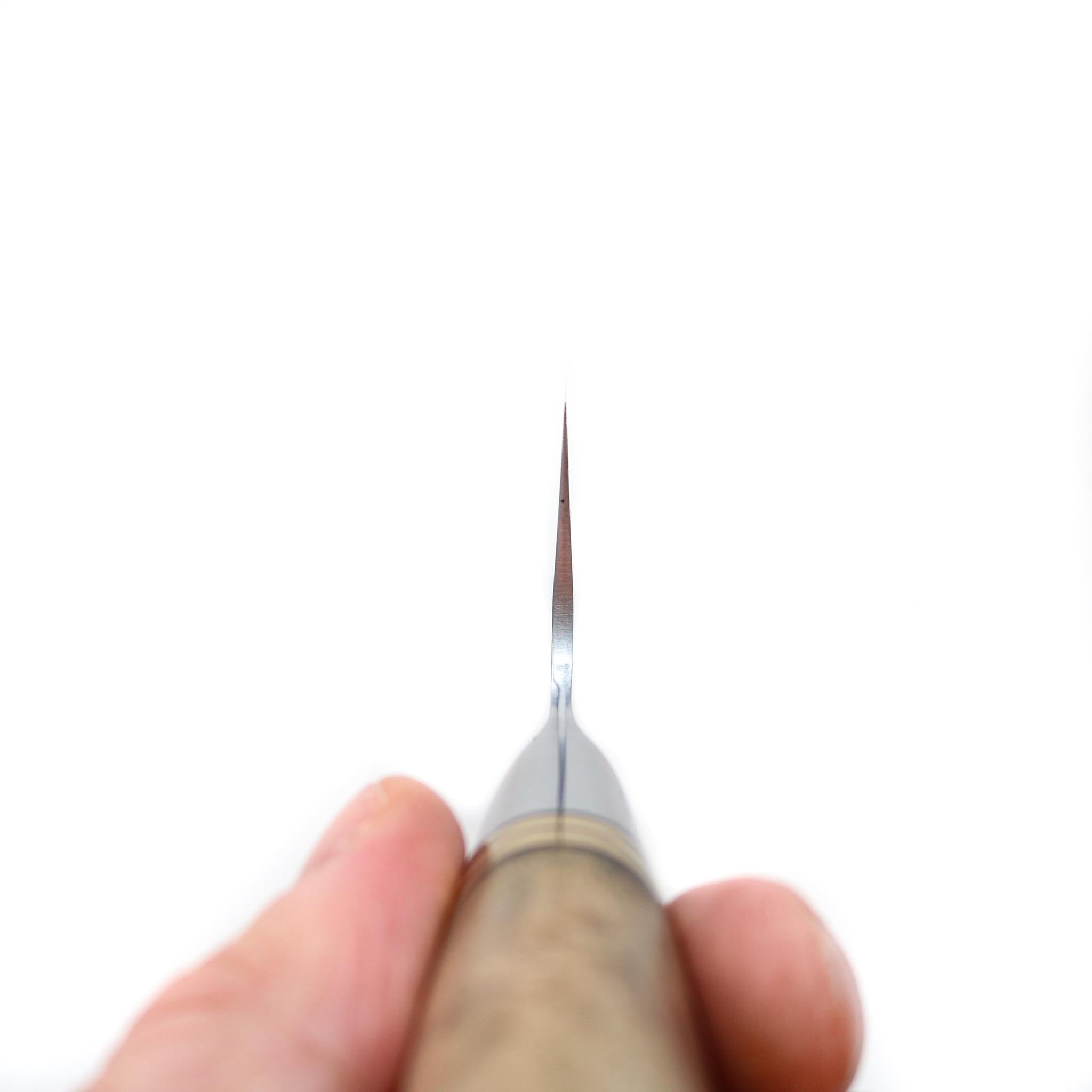
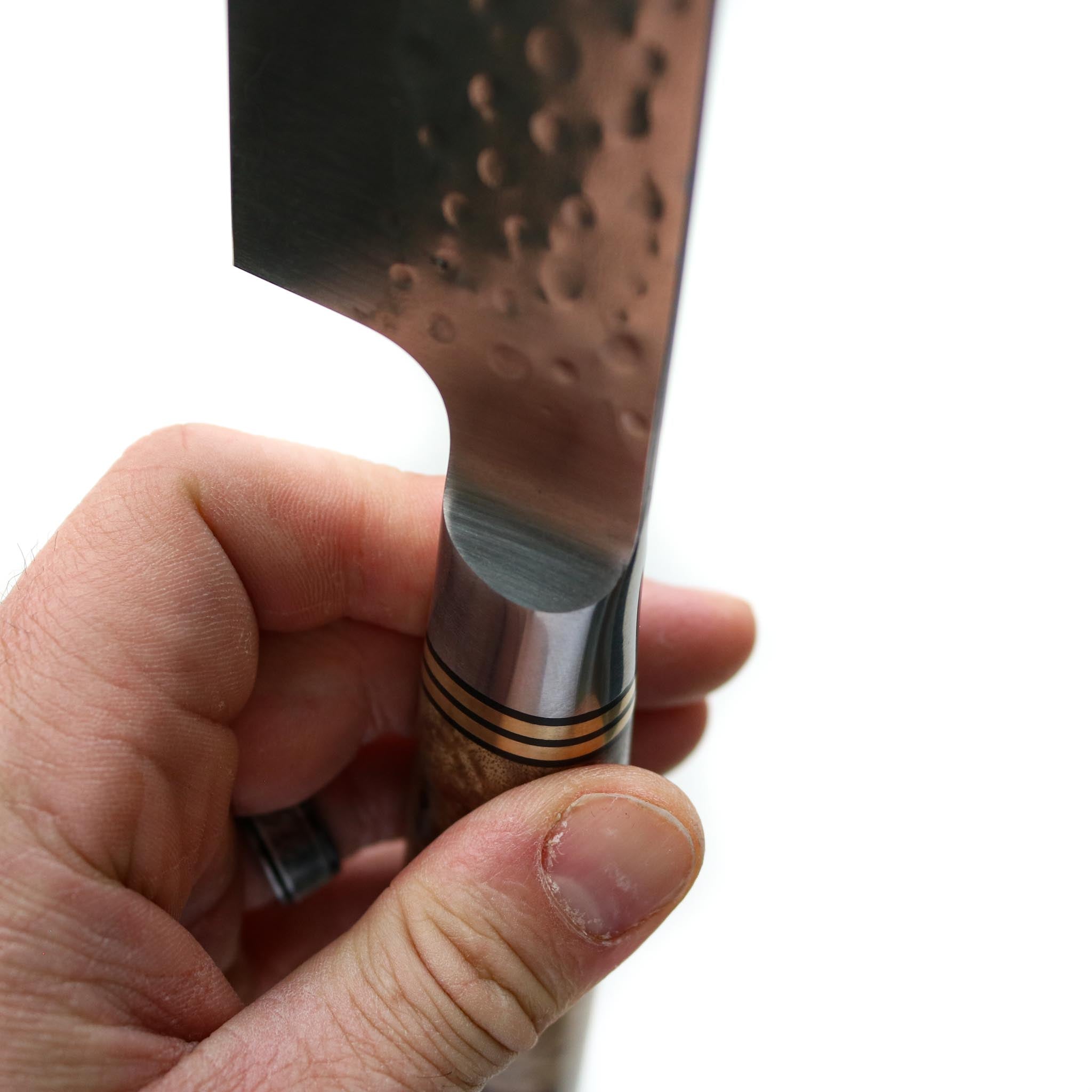
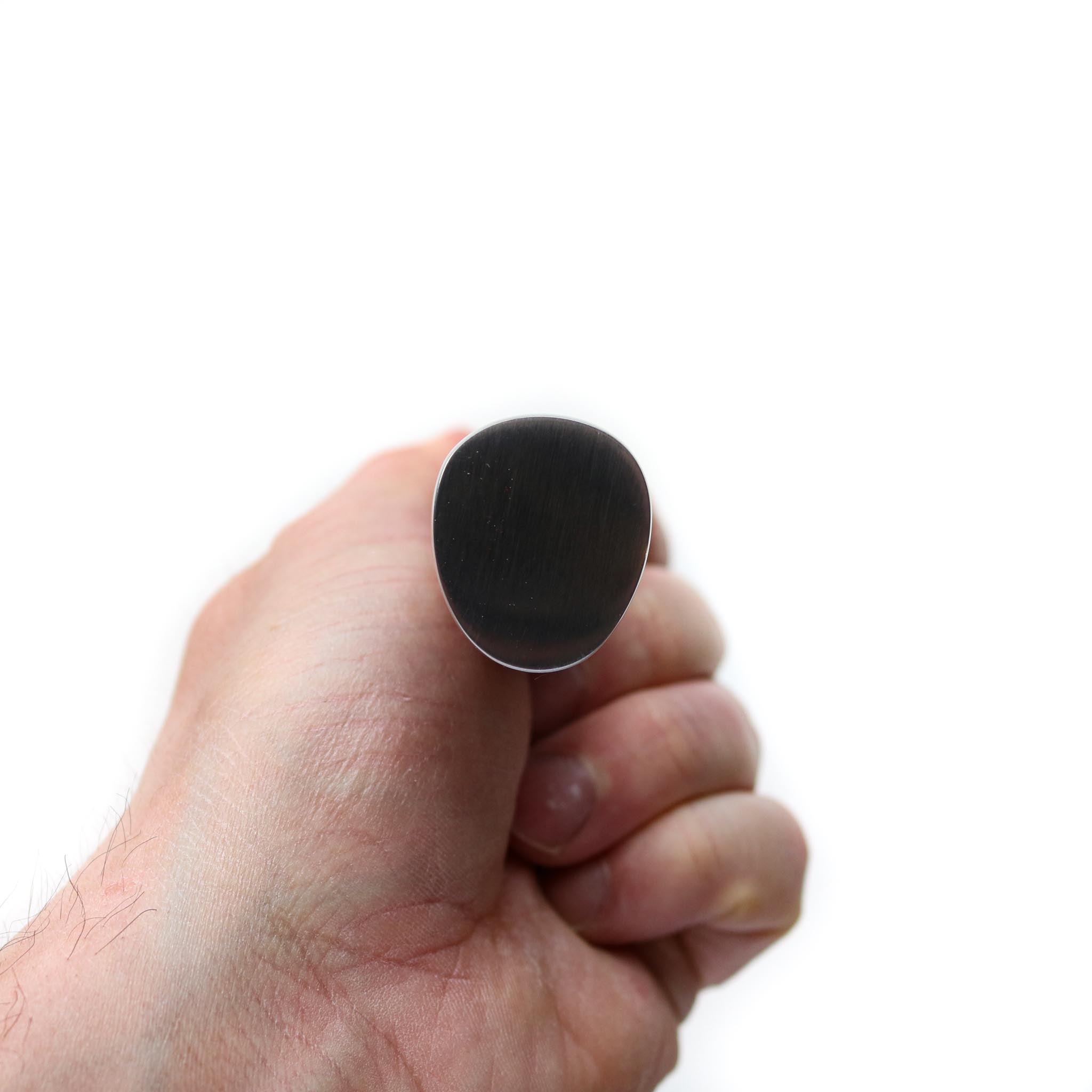
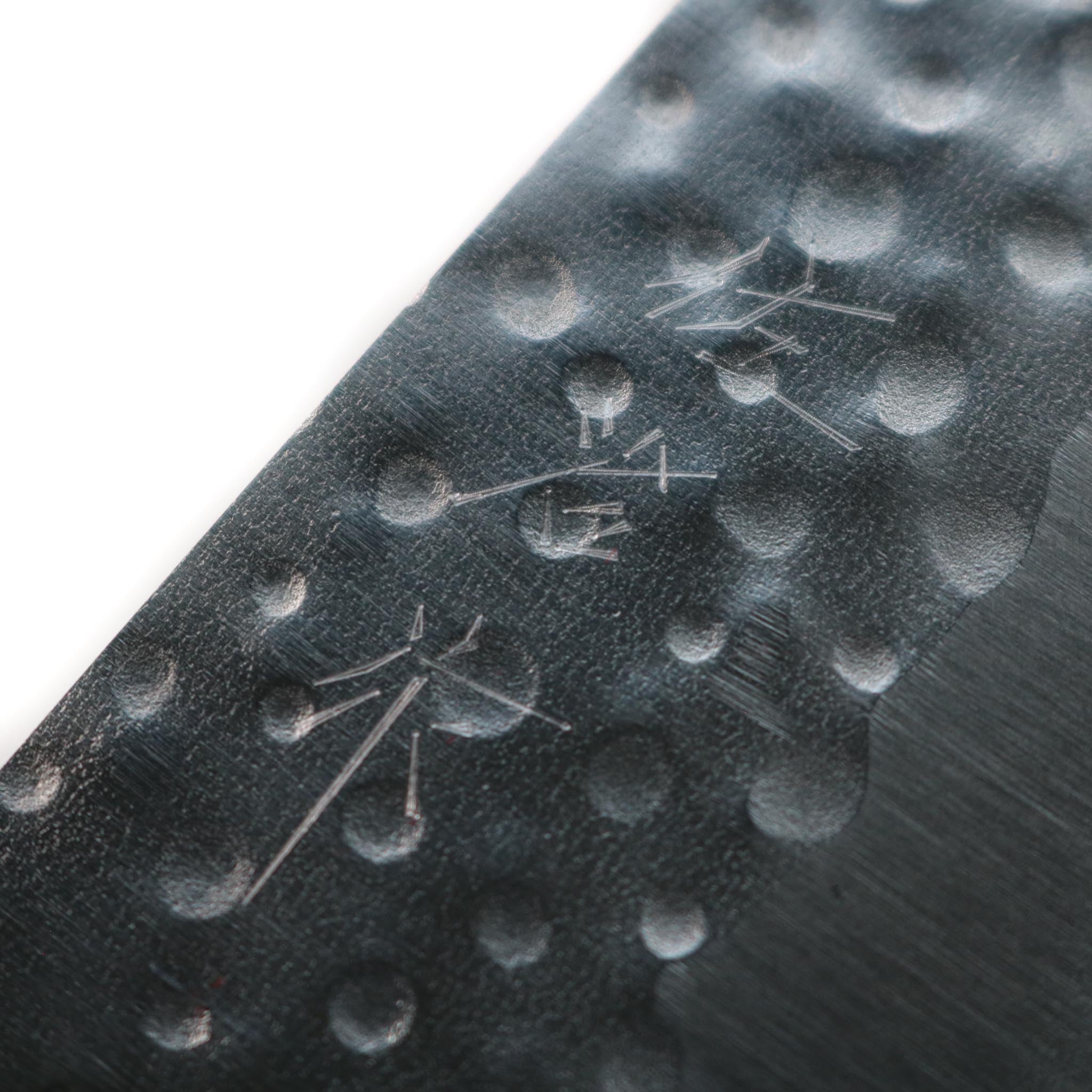
| Blade Length | 210 mm |
| Total Length | 349 mm |
| Steel | R2(SG2) |
| Handle | Quince |
| Rockwell | 62-63 |
| Height Spine to heel | 48 mm |
| Width at Spine | 2.1 mm |
| Weight | 206 g |
| Bevel | Double (50/50) |
The Blacksmith
Takeshi Saji is a master craftsman working out of the famed Takefu knife village, an co-op of incredible craftspeople renowned for it's kitchen knife production. In 1992 he was recognized by the Japanese government as a "Traditional Master Craftsman" and he was one of the founding members of the Takefu knife village. He hand forges each of his knives using the traditional methods passed down through the generations over the past 700 years.
Takefu Knife Village
The Takefu Knife Village is a cooperative workshop in the Echizen region of Japan. It is the home to a long list of blacksmiths that we work with and many young and upcoming apprentices learning the trade. The area has a 700 year long history of smithing with roots in agricultural tools turned cutlery powerhouse.
The Knife
The Gyuto is the Japanese equivalent to a standard western style Chef's knife and is THE most versatile shape available. It can be used to break down fish and other animals, chop vegetables with both an up and down and rocking motion, slice cooked and raw proteins and anything else you can think of. We highly recommend this shape to anyone looking for that one go to knife they can grab with confidence for any task.
Follow these care recommendations for your Japanese knives to protect the edge and keep them sharp as long as possible:
All products are shipped within 24 hours. We offer same day shipping for products ordered by 12pm. Please allow 4-7 business days for your shipment to arrive with standard shipping. Expedited shipping options are also available at checkout.
We offer free shipping on orders within Canada over $150 CAD and free shipping on orders to the US over $200 USD.
Curbside pick-up is available at both our Hamilton and Etobicoke locations.
To make sure our customers are always satisfied, we offer full refunds on products for 14 days after receiving them. See our full return policy for details.
More questions? Check out our shipping policy, our return policy, or reach out to us directly.
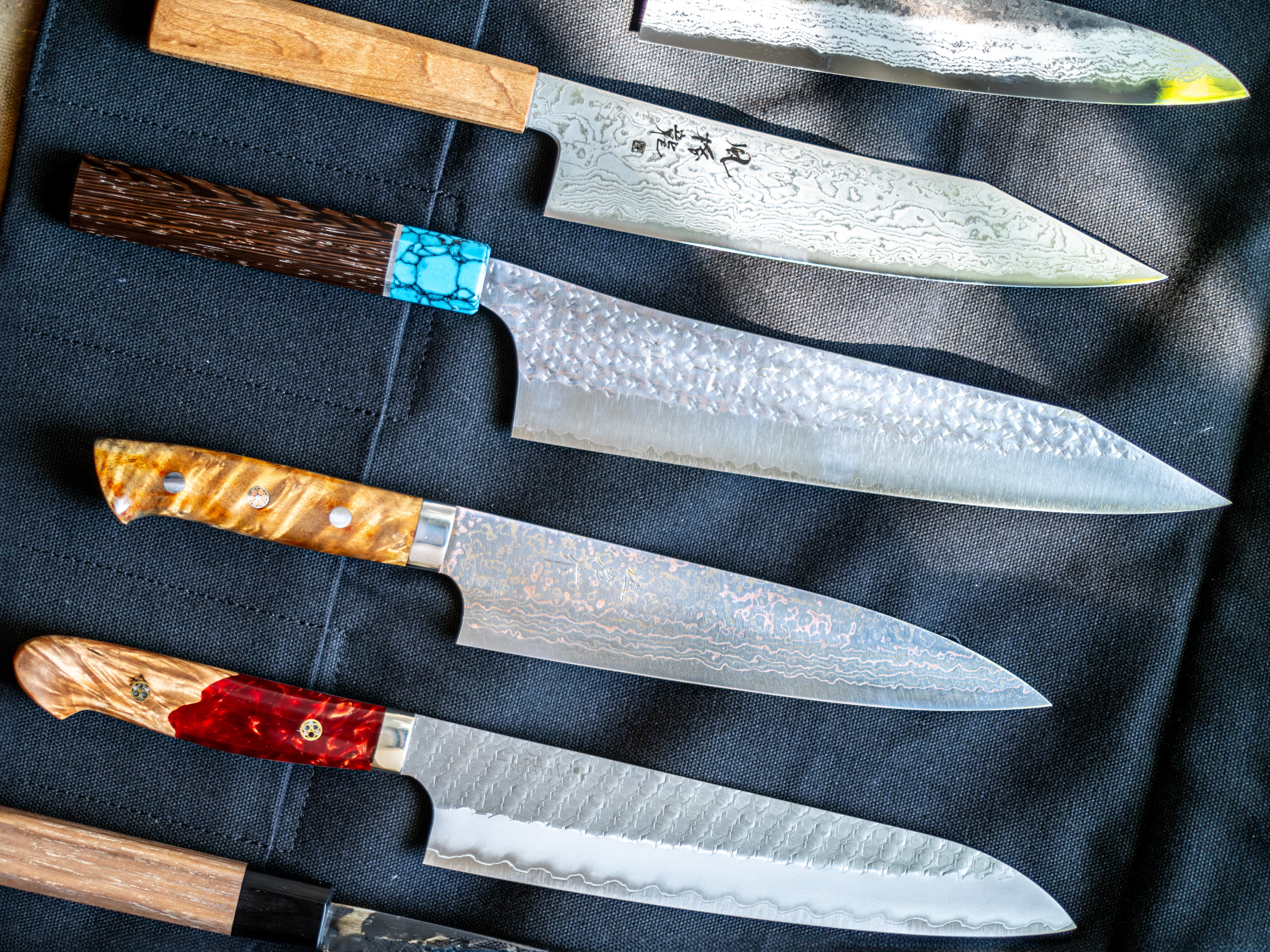
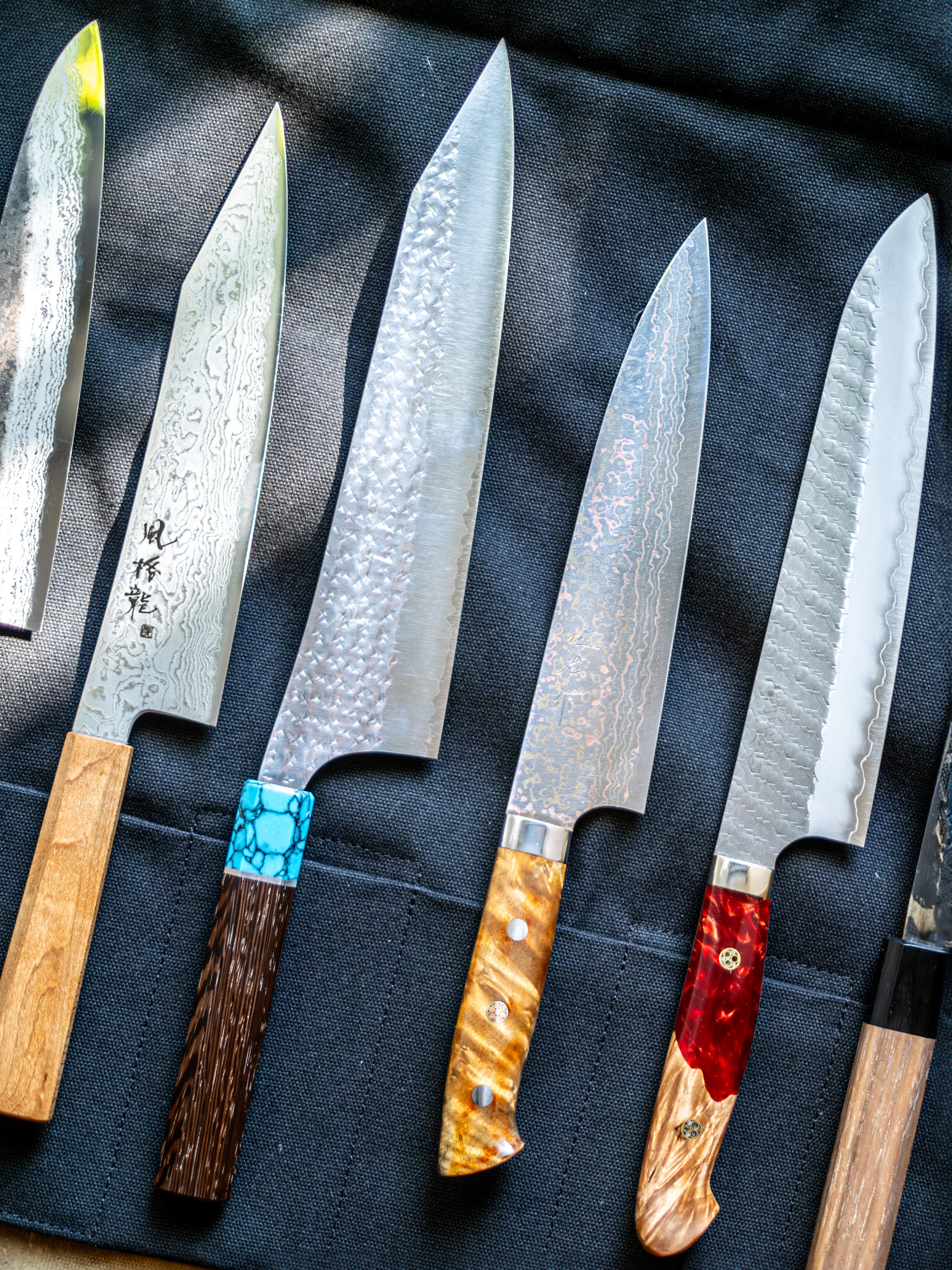
The Gyuto is the Japanese equivalent to the western style chef’s knife and is without question the most versatile knife shape. It ranges in size from 180 mm (7 inches) to 240 mm (10 inches), making it longer than the Santoku and Bunka. This length makes it adept at handling almost any task you'll come across in the kitchen, from mincing small ingredients to chopping through larger fruits and vegetables. The longer the knife, the more time it will take to grow accustomed to its length, but the more versatile it will be.
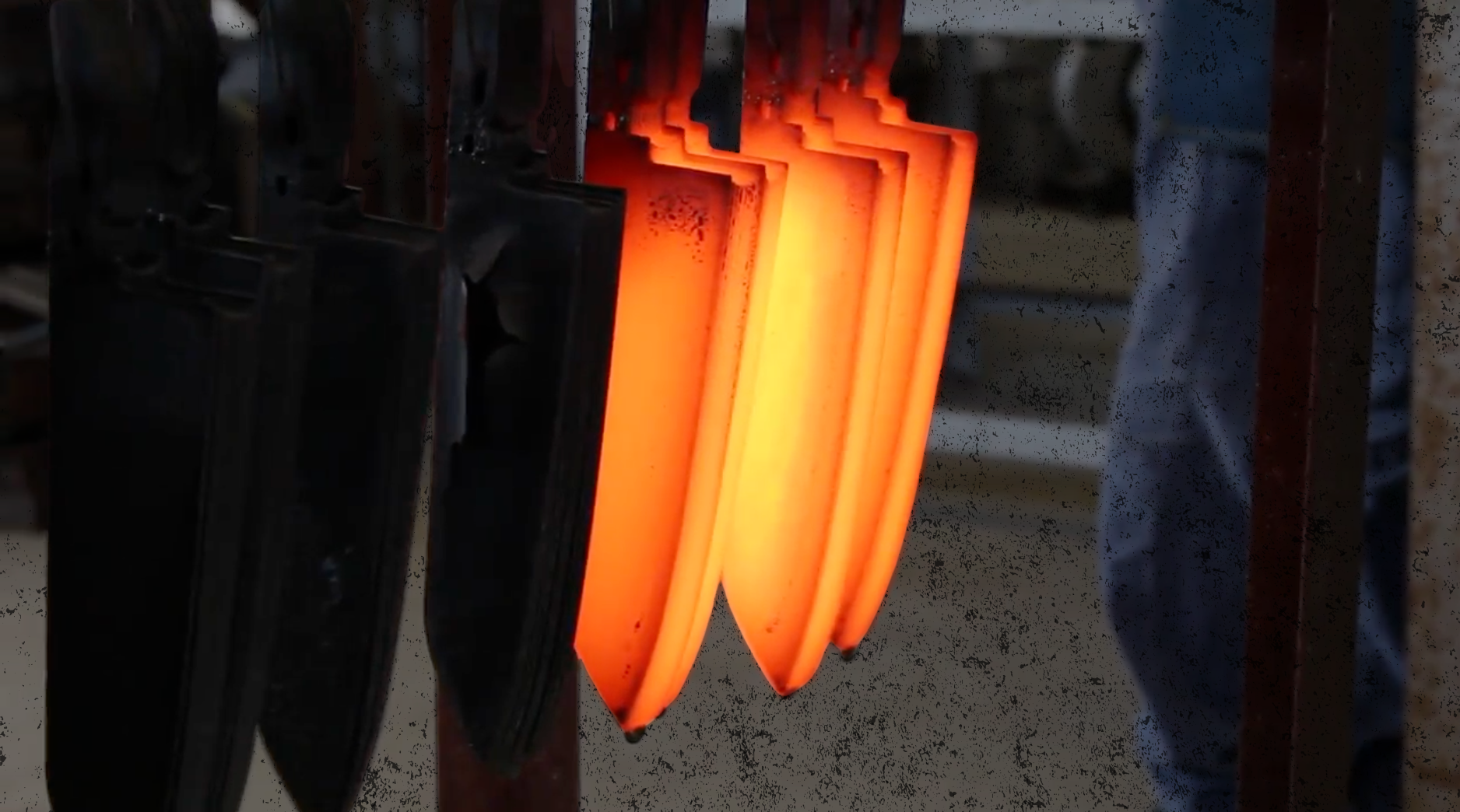
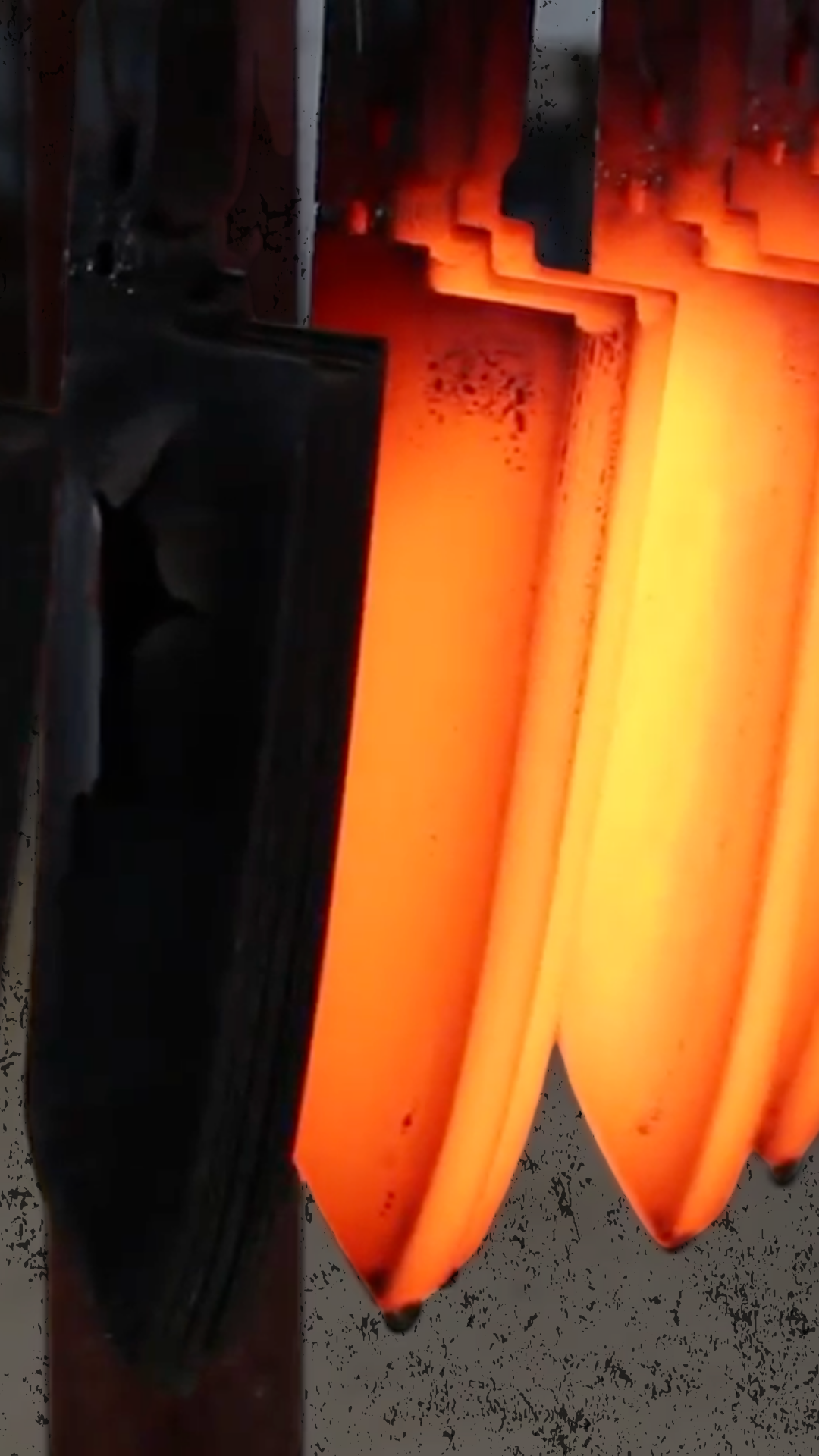
R2 and SG2 are technically different steel types, but are so similar we and many other retailers lump them into the same category. They are what’s known as a “quick powdered” stainless tool steel with incredible edge retention and corrosion resistance. Their one drawback is that their hardness can make them difficult to sharpen. It is not a steel we would recommend for those planning to thin and polish the bevels of their knives unless they are equipped with the proper tools (you will need a low grit stone in the #200 grit range).
Chemical Composition:
C 1.25-1.45% | Cr 14.0-16.0% | Mo 2.3-3.3% | V 1.8-2.2%
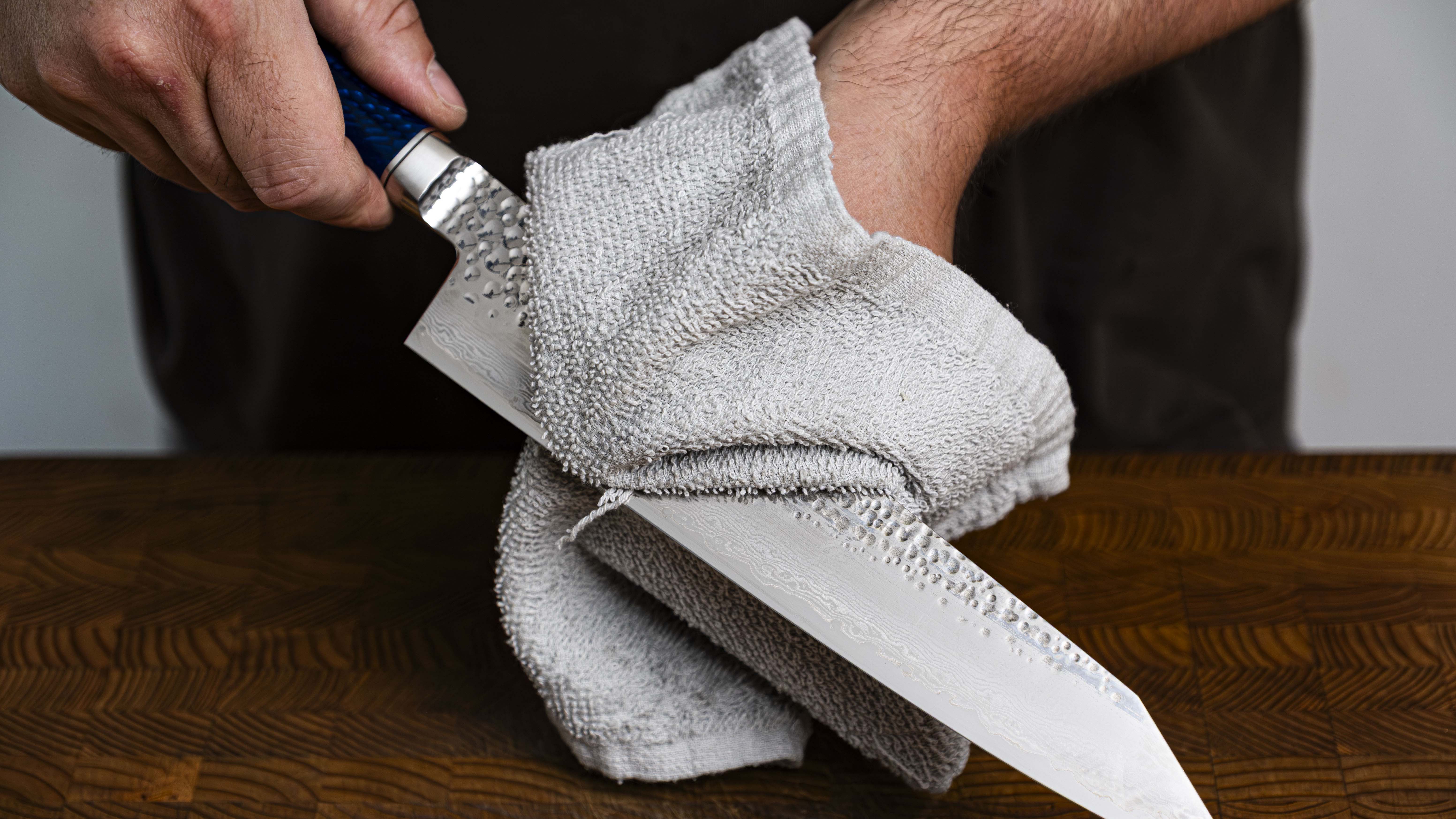
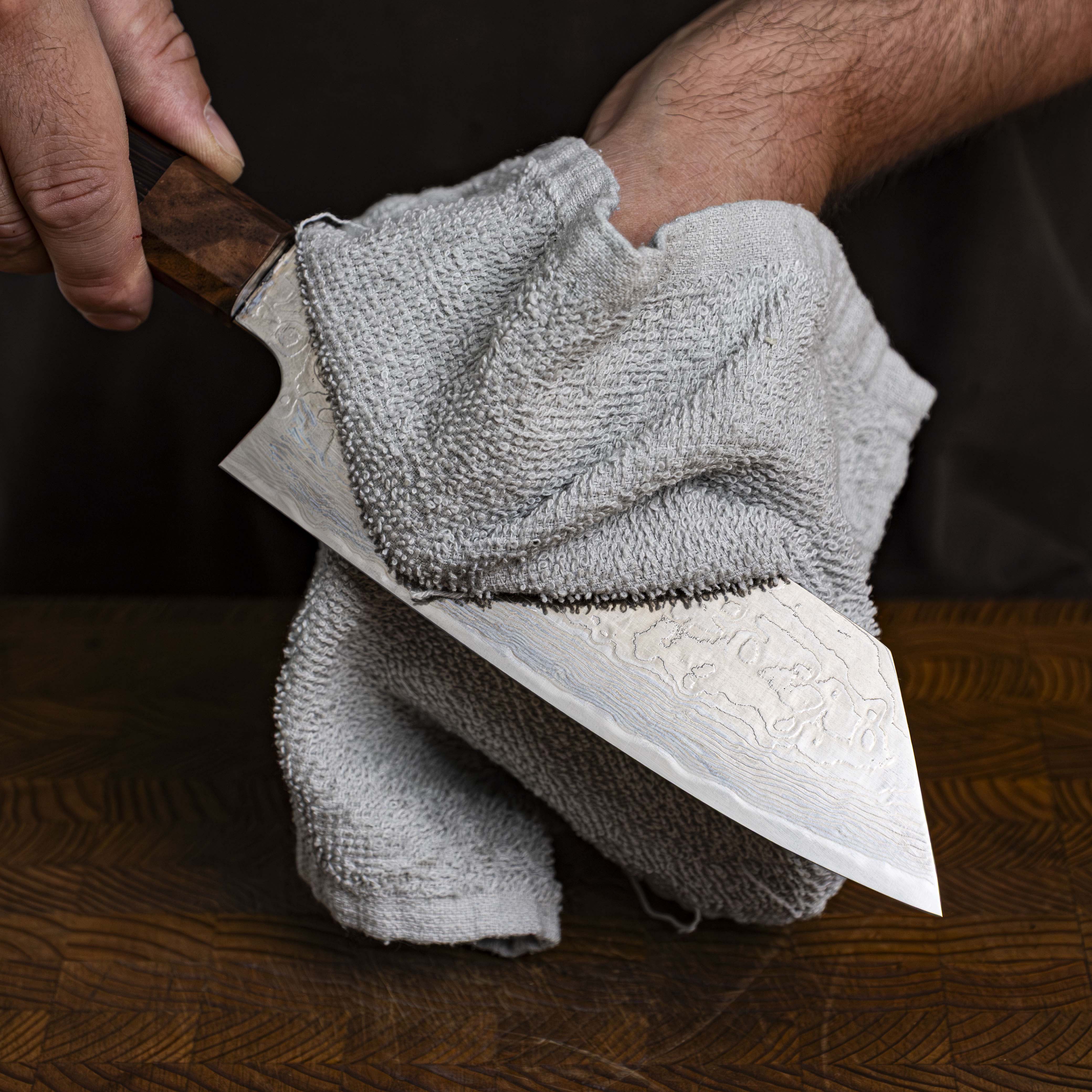
LOW MAINTENANCE
Stainless steel Japanese knives are made in a process called “Sanmai” or “Forge welding” where two softer layers of stainless steel are laminated around a harder core layer of stainless steel. All three of these layers are rust resistant and therefore are not susceptible to rust or discoloration. The softer outer layers of steel are used to make the knife more durable and flexible while the harder core layer is used to provide better edge retention to the blade.

Takeshi Saji is a master craftsman working out of the famed Takefu Knife Village in Echizen City, Fukui Prefecture, Japan. He is known for his incredible craftsmanship in knife-making. In 1992 he was recognized by the Japanese government as a "Traditional Master Craftsman'' and he is one of the founding members of the Takefu Knife Village. Takeshi Saji hand forges each of his knives using the traditional methods passed down through generations over the past 700 years.
